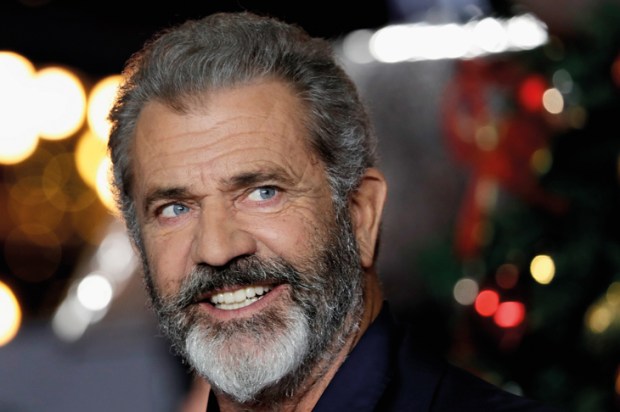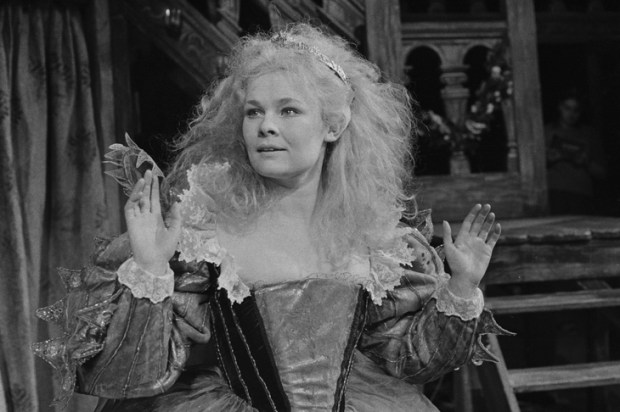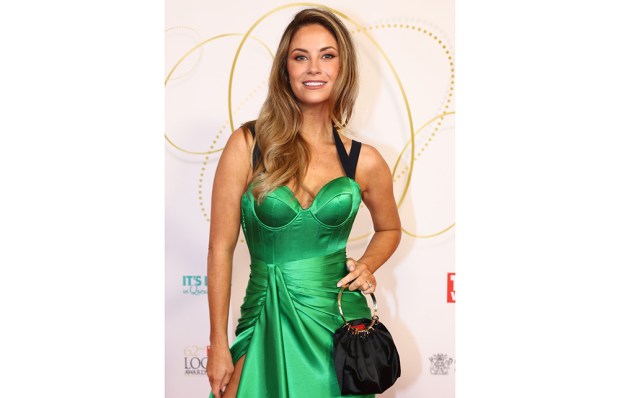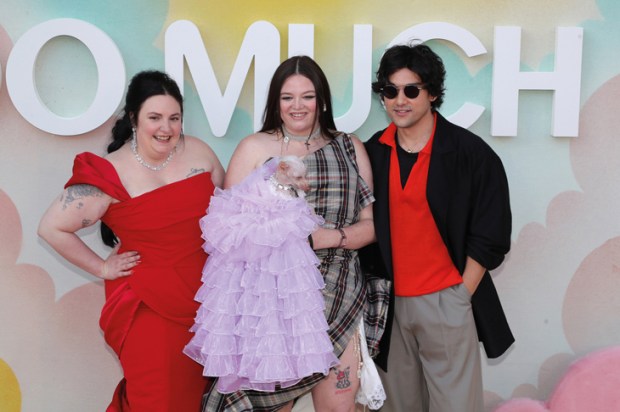Sunset Boulevard is one of the weirdest entertainment phenomena in the history of the world because it starts as a flawless cinematic masterpiece by the great Billy Wilder about Norma Desmond – former queen of the silent screen unforgettably played by Gloria Swanson – who becomes obsessed by William Holden’s character Joe Gillis, a young screenwriter. The film is effortlessly wise and funny and sophisticated and it is also gleamingly self-reflexive: there are not only snatches of Norma Desmond in her heyday, beauteous and bygone, as well as grotesque depictions of her delusional state, but there are cameos of real-life Hollywood figures – Cecil B. DeMille, Hedda Hopper, Buster Keaton – and most notable of all there is Erich von Stroheim, a great director of the silent screen (Greed is thought of as a masterpiece, not least by Susan Sontag), playing Max Von Mayerling, the former film director and one-time husband who ministers to Norma Desmond’s infatuated raves. The Opera Australia/GWB production captures all this in a brilliant, colourful interpretation by Paul Warwick Griffin (the associate of Matthew Warchus) and it is wonderfully easy on the eye with a grand and glamorous set and costumes by Morgan Large and slick, rapid-fire choreography by Ashley Wallen which delights the eye. Everything, in fact, delights the eye and ear with great Gothic curtains sweeping away to reveal new vistas. So what can be said of Sarah Brightman in the dazzling and devastated role of Norma Desmond?
Yes, the role has been played very differently before, first by Patti LuPone in the West End and then by Glenn Close in Los Angeles followed by Broadway, all under the direction of the great Trevor Nunn who was also responsible for the version done in Australia with Debra Byrne as the faded starlet and the young Hugh Jackman as the scriptwriter who falls into her hands in the most effortless yet fatal way. Then last September, Jamie Lloyd did a new version in London with Nicole Scherzinger, of The Pussycat Dolls, which carried all before it and is headed for Broadway.
Sarah Brightman was the great voice of Andrew Lloyd Webber’s life. She was his Christine Daaé in Phantom of the Opera and, many years after their six-year marriage, everyone who knows him says that he won’t shut up about the magic of Brightman’s voice. With its immensity of range and the way it can go from glacial peaks to Toblerone richness it seems to have been the Platonic idea of a vehicle for Lloyd Webber’s music. The way in which Brightman’s career embraces the operatic and the popular has a peculiar affinity with the lord of musicals with his sweeping assimilation of chord progressions which may echo Puccini or whomever, his ability to assimilate all manner of parodistic influences and reverberations while remaining in tune with a popular conception of how the show must go on.
So there’s a weird brilliance of effect in having as Norma Desmond the singer who has conquered two vocal worlds. Sarah Brightman sings and acts with a sumptuous magnificence as Norma Desmond. She may have a monumental tempo as she gradually mounts a big song like ‘As If We Never Said Goodbye’ but the effect is golden and brings with it its own shiver of excitement.
Nor is any of this incompatible with the dramatisation of Norma Desmond as lost in a new world that has no place for her except as a memory. It is as if Sarah Brightman has, with the encouragement of Paul Warwick Griffin and music director Paul Christ, shown great artistic courage in using her achievements as Christine, her long-established grandeur as the world’s greatest crossover soprano as the equivalent to Norma Desmond’s former glory. It’s as if the music of that long-ago night contains a history of its own in a way that dazzles and disconcerts at the same time.
Just as Gloria Swanson shows how much she can act in a world where she’s not allowed to, so Sarah Brightman takes the vocal shield of the long-ago stage star, the dizzying phantom of her own career as a young majestic singer, the vocal persona last seen on a dramatic stage in Aspects of Love and rushes headlong into battle with it.
Yes, there is a risk in this. Yes, the ice and the chocolate may seem a bit much but this shows the audacity of the star’s willingness to present herself in this role as yesterday’s girl. We watched Billy Wilder’s masterpiece again after seeing Brightman’s Norma and it was striking that she was closer to Swanson’s self-exposure – her deliberate, even grotesque, self-exposure – than clips of Glenn Close.
It’s worth adding that Tim Draxl is everything he needs to be as Joe Gillis and his rapport with Ashleigh Rubenach as Betty Shaefer is wonderfully tender and sexy. She is a natural-born star and will glow and glow with the years. That fine actor Robert Grubb is impeccable, strong and moving as the great director turned servant.
All of which is compatible with the fact that Sunset Boulevard didn’t have to be a musical. Christopher Hampton’s very adept verbal adaptation and Andrew Lloyd Webber’s complexly variegated homage to film scores points to the original masterpiece.
But it was a dazzling first night even before it started. Jo Hall from Channel 9 and Patricia Karvelas from Q & A were there. So too David Hallberg, looking like the prince of the ballet with his huge blue eyes, and Pettifleur Berenger, looking like a monument to the days when flickers and images spoke without sound. And who would not be grateful to spend time with Bojana Novakovic who is about to play Lady Macbeth in a strange meta-version of the Scottish tragedy from the Lady’s point of view.
We’re lucky to have Sarah Brightman as Norma Desmond in Sunset Boulevard. Opera Australia’s big ventures like the Julie Andrews-directed My Fair Lady come with a risk but in the case of Sarah Brightman there’s magic in that risk and there is also triumph.
Got something to add? Join the discussion and comment below.
You might disagree with half of it, but you’ll enjoy reading all of it. Try your first month for free, then just $2 a week for the remainder of your first year.













